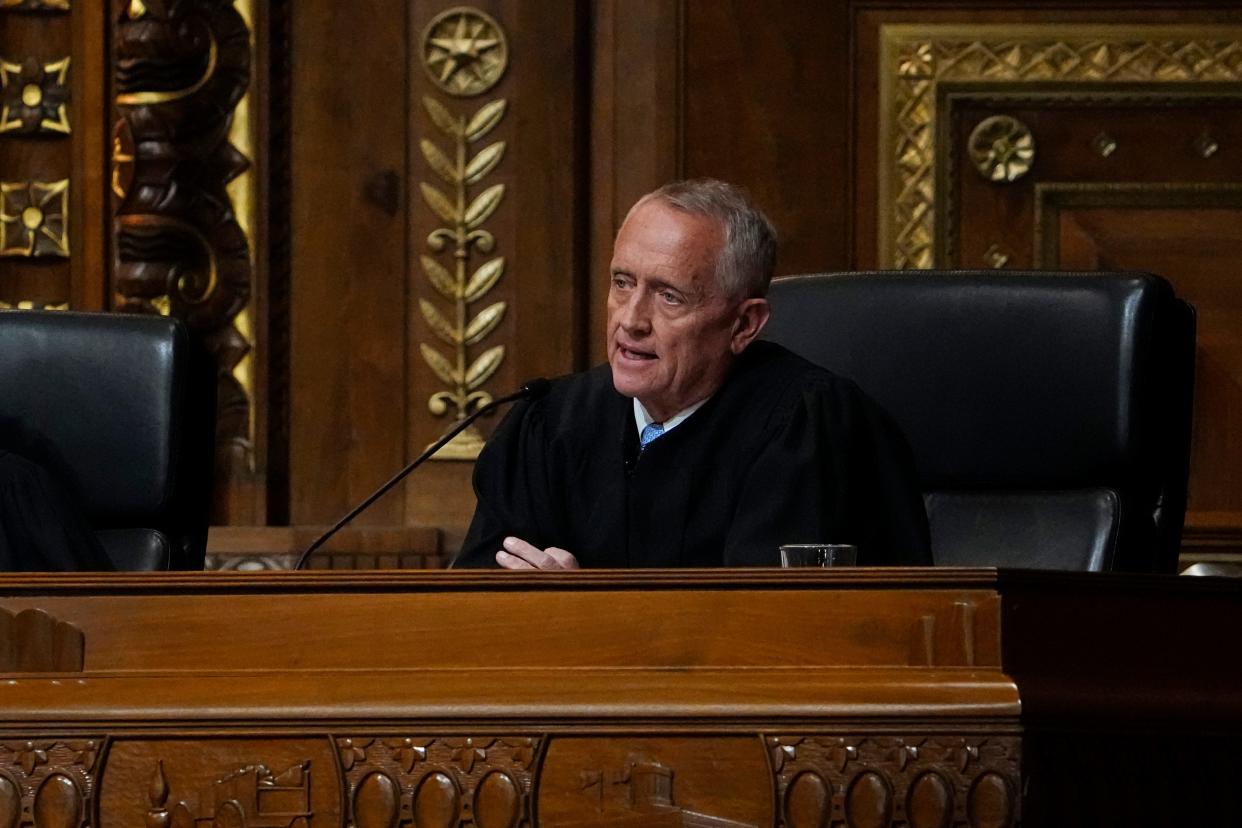Opinion: Don't let Xavier become the next Intolerance U.

- Oops!Something went wrong.Please try again later.
You might want to read this piece before it gets canceled. That’s how fast cancel culture is moving lately. And the black robe I wear in court everyday has no magic ability to shield me.
Irony must be dying since there seem to be so many loud voices seeking to silence others. Every day brings yet another ham-handed example of censorship and screeches of perceived offense. Our institutions of higher learning, which should serve as a bright beacon of free speech in the name of civil debate and discussion, are the front lines of cancel culture. Earlier this month, pouty students and an unhinged diversity dean at Stanford University shouted down a federal judge who’d been invited to campus. Worldwide news stories amplified the ridiculous incident. Yet the Queen City has its own example much closer to home.
Last month, Xavier University appointed Ohio Supreme Court Justice Joe Deters to serve as "justice in residence." He’ll interact with students in the classroom. Xavier President Dr. Colleen Hanycz said that the justice in residence program serves one of Xavier’s spires of academic excellence − high impact experiential learning. What an opportunity for students to learn from someone with a long career in the law and on the front lines of legal thinking in Ohio. But, not so fast.
More opinion: Xavier petition to cancel Deters the opposite of higher learning
In the last several days, a tiny slice of extremist students and other partisan activists sought to cancel Justice Deters. The Xavier University College Democrats started a petition to rescind Deters’ appointment. News stories reported that the petition had 636 signers, many of whom aren’t even students. The petition falsely claims that Deters doesn’t represent "Jesuit Catholic values or teachings."
They don’t bother defining their smear − in the cancel culture, accusations are enough. The Xavier Democrats’ Twitter bio says that the group is dedicated to electing Democrats up and down the ballot. In Ohio we elect judges, and those elections are fiercely contested. There’s nothing wrong with that. There is something wrong when we can’t see the educational value in having a state Supreme Court Justice interacting with students. There is something wrong when college students seek to silence voices, rather than engaging with them to expand a world view. Learning requires listening.
A free republic can’t remain free without the ability for its citizens to discuss all ideas. Our founding fathers understood this, which is why the First Amendment was one of their most important endeavors. Freedom of speech is a core American value that every student ought to understand and respect.
Students who demand spaces that keep them "safe" from ideas that challenge their preconceived notions simply aren’t ready to take on adult leadership roles. All too often, they are ignorant of history’s dark examples of free-thinkers being sent to gulags and reeducation camps. Society expects higher education leaders to ensure that these lessons are taught and understood. Snatching a sheepskin on a commencement stage doesn’t make someone educated, understanding the intricacies of a complicated world does.
Universities and university students need to get back to the business of preparing for life’s intellectual rigors. With the creation of the justice in residence, Dr. Hanycz has taken a laudable step in that direction. The students should engage with Justice Deters. Ask tough questions. Disagree earnestly. He can take it. But have the debate − they might just learn something.
As judges, Justice Deters and I took an oath to uphold the Constitution and its free speech precepts. When lawyers come before us, we ask them difficult questions to clarify the law. When witnesses in court are cross examined, the truth becomes more plain. These legal exchanges can be tense, difficult, and even might hurt some feelings. But rigorous exchanges are a cornerstone of justice.
Some of the students at Xavier may want to become lawyers. Others will come to courts as litigants or witnesses. But all of them should know that seeking an education instills a basic duty to expand their minds, take in different views, and build opinions only after hearing all sides.
As a judge, this process helps me learn every day. Just imagine what it will do for the leaders of tomorrow.
Judge Megan Shanahan has spent more than 22 years in the legal system, first as a prosecutor and now as a Hamilton County Common Pleas Court Judge and candidate for the Ohio Supreme Court.
This article originally appeared on Cincinnati Enquirer: Opinion: Don't let Xavier become the next Intolerance U.

